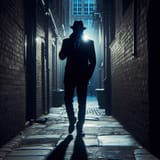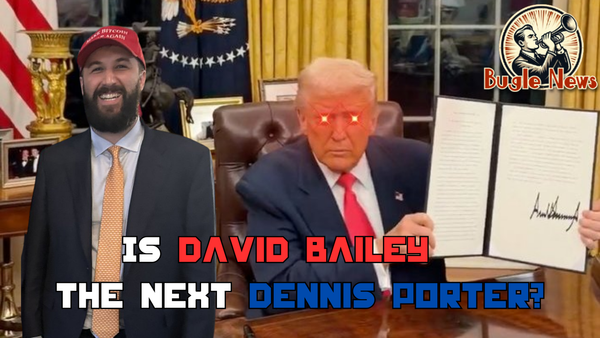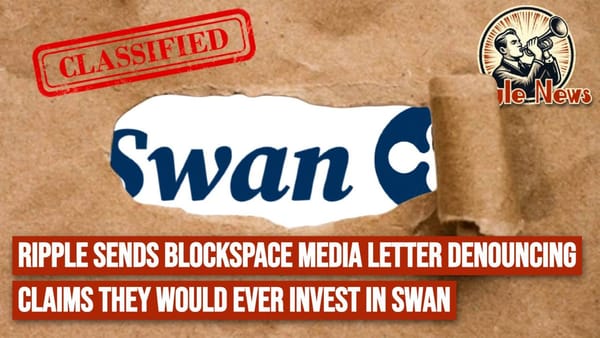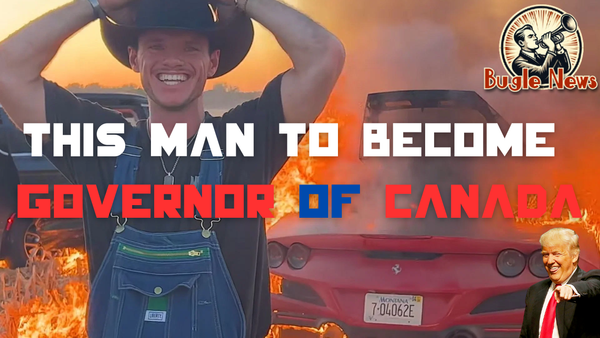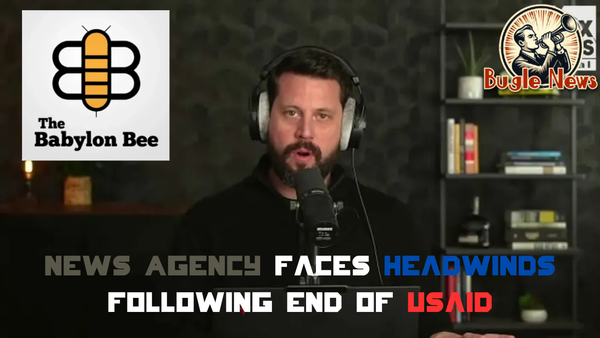The Sad Man Who Thought For Himself

There was once a man in a far off land who bucked the trends and would think for himself. The man lived on the edge of town because the townspeople did not like or trust him. He was an odd ball that stuck out from the rest because he always tried to think for himself. When the mayor of the town would make his decrees, the man would often argue and question to the dismay of the towns people.
"Why would he question the mayor who was fairly elected by the town? Had he not been given a good education to see how fair our mayor is, and how brilliant our democracy is?" The people would ask each other.
This man had gotten the same education as the rest of the towns people, but during that education, something did not sit right with him. For a while he believed in the wonders of democracy and saw the merits of organizing society around elected leaders. But inside there was a question as he was taught about other towns with different ways of organizing politically, not being as free his town.
He was told his town was the freest in the world, and wondered why if his town was so much freer, why would the citizens of the other towns accept their situations? So he traveled to these towns, only to find that the people in them also thought that they were free and had exceptional situations as well.
In their schools, they were taught many similar things. Each school taught obedience to the towns leaders, a different version of history, and how the town's way of organizing was superior to all others. Each town had a flag, or a picture of a leader that children would swear fealty to. It appeared to the man that despite each towns differences, the people believed in the systems they lived in, and were taught to be terrified of anything else.
One day, the man was visiting a town when it was invaded by a neighboring town. The town that he was visiting was ruled by a king for 24 years, before a democratic town invaded it to liberate it. The liberators executed the king and worked to install what they called a, "Fair and free democracy." The invading town was his town where he grew up.
Initially he was excited that the town he was visiting would enjoy the freedom that he grew up with, but quickly saw that would not be the case. The election consisted of two individuals that were picked by the invaders and wanted to reject the countries history and values, in favor of the history and value of the invaders. During the election, he saw very anti democratic things happen.
People who were loyal to the king and resented the invaders were silenced through various means. He even saw noncompliant individuals tortured and killed, in the name of protecting freedom and democracy. Strangely enough, that did not seem consistent with the values he was taught about.
Democracy he remembered was the idea of the people determining their lives for themselves by voting for representatives that represented them. But in this particular case, it did not seem as if the representatives participating in the election actually represented the people of this town. Instead, it seemed like the representatives represented business interests of the mayor of his own town.
With his new insights, he returned to his town where he began to see some inconsistencies. It seemed that the mayor of his town had special privileges for himself and his friends. The invasion had allowed plundering which he distributed to his friends. The mayor justified his actions by saying that they had no choice but to invade in order to protect their own freedom, as well as providing freedom to the neighboring town.
"If we are truly free, and this is a better system, why would we need to kill other people in order to protect it instead of just setting an example for the rest of the world to prosper? Wouldn't we just have to show the rest of the world our success through example for them to see our way is better? Doesn't competition of different ideas to find the prevailing and most successful systems solve this issue without violence?" The man asked the mayor one day.
The mayor responded with, "You have to understand that not all cities are as free as us. They do not have free media, and do not have as good of education as we have. Often times, the people are so brain washed that they need assistance to see through what they have been taught over and over."
"But can you explain how toppling the government that the people are consenting to, stealing their property, and murdering their citizens is furthering freedom? It seems like we are just subjugating them and removing their ability to choose their own destinies," the man replied.
The mayor finished with, "The people there never had the ability to choose for themselves, they only thought that they were free and happy, until we offered them true freedom and happiness through democracy."
With that, the man left the mayor and his town to go back and visit the town that was invaded. What he found was that the once vibrant town had been thrown into chaos. The people did not feel represented by the elected officials, and there had been many violent battles between different cultural groups within the city for control. What had once been a stable city and center for trade had turned into a chaotic war zone. His town had left an occupying force to try and keep the peace and ensure a smooth transition of power, but because the people did not believe in or consent to the occupiers, they were not making very mush progress in keeping the peace.
When a disruptive individual created issues, the occupiers would kill them, only to find that the disrupters children and grand children would carry on his message with greater conviction. The more people the "free" society killed, the more people resented that free society. The man left the invaded town to return once again to his own town.
He found there that the ordinary people of his town had experienced much hardship as the towns resources were being used in order to fund the invasion and occupation of the neighboring town. While the mayor and all his friends lived in luxury as a result of their new wealth from looting, most of the townsfolk did not see this. They were happy though because they believed their sacrifices were being used in order to ensure another town was as free as theirs.
While walking through the streets around his home, he ran into his neighbor who was a blacksmith who made weapons for the towns army. He asked the blacksmith, "Do you ever wonder if the weapons you are making are actually helping to protect freedom, or are they being used in order to enslave us and the people the mayor chooses to invade?"
At that, the blacksmith became angry and dragged the man to the city hall to report him for "Trying to subvert freedom." He was jailed for 5 days to reflect on his crime and receive reeducation on the values of freedom and democracy. After being set free, the mayor ordered him to not ask questions that were, "A threat to our democracy" or else.
During his time of reflection, the man could not see how asking these questions was either a threat to the political system, based on freedom and the will of the people. If he was not allowed to ask important questions, what did that mean for the people around him? Were they able to make decisions for themselves, or were the decisions being made for them by the people that controlled the narratives.
He had not paid much attention to what people were being taught about the neighboring town that was invaded, but during his imprisonment, he learned that the people of his town were being taught how much freedom had benefited the neighboring town, and how they treated the occupying soldiers as heroes. He had seen with his own eyes that this was far from the truth, and even saw how his own town had been hurt by the war.
After he was released, he hatched a plan to speak at the next town hall in front of all the towns people. During the town hall, he attempted to share his revelations before he was stopped by the towns law enforcement for attempting to subvert democracy. The towns people jeered at him for sharing dangerous misinformation, and being unpatriotic. He was given the choice of imprisonment with reeducation or exile, which he chose exile.
He left the town with only what he could carry. His possessions had been seized by the mayor of the town who stated that, "You only had what you had because of our democracy. Your rejection of it shows your ingratitude for our system and therefore I'm confiscating your stuff to show you a lesson, as well as to teach the townspeople that questioning and thinking for yourself will not be tolerated in our free town."
In reality, the possessions the man had acquired were a result of his own hard work, creativity, and discipline. He had bought those things with money he had earned by working hard and saving money. Now he was leaving the town he grew up in and had loved with nothing. Nothing but his mind, and his ability to think for himself, which if you think about it, is far more valuable than all the possessions he had had before.
While he was devastated for losing all his possessions and leaving the community that he grew up in forever, he knew that his conscious was clear. To him, that was more important than power, money, or fame. The man had discovered true freedom and vowed to never let another man do the thinking for him again. While he was sad at losing much, he was also grateful because he knew that in losing what he had built while believing lies, he had gained his dignity and self respect.


